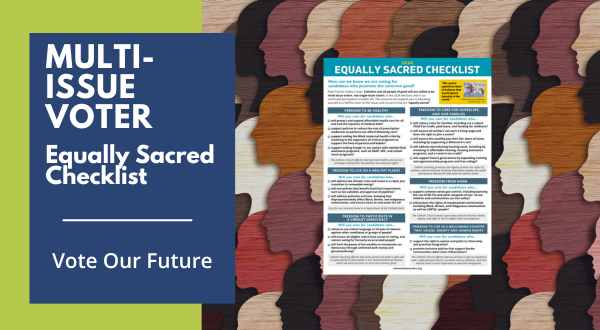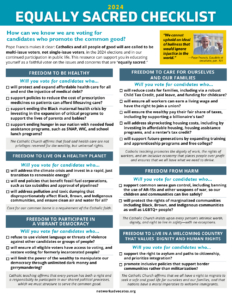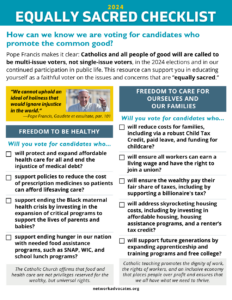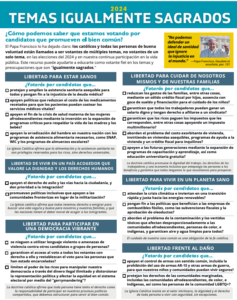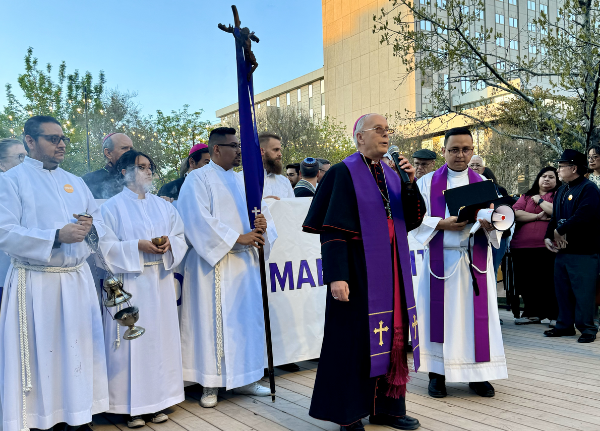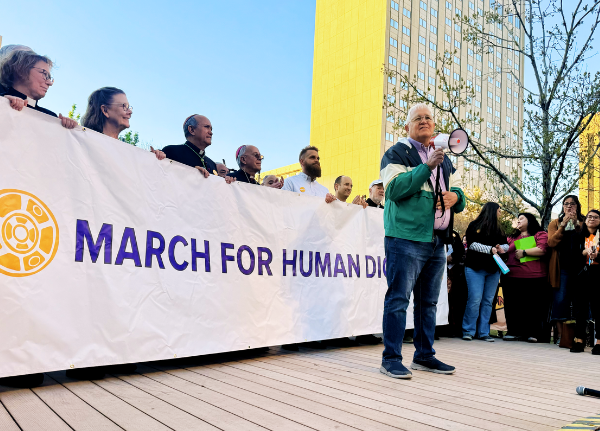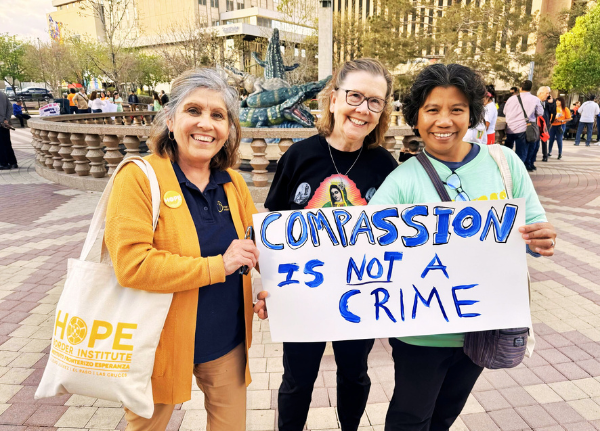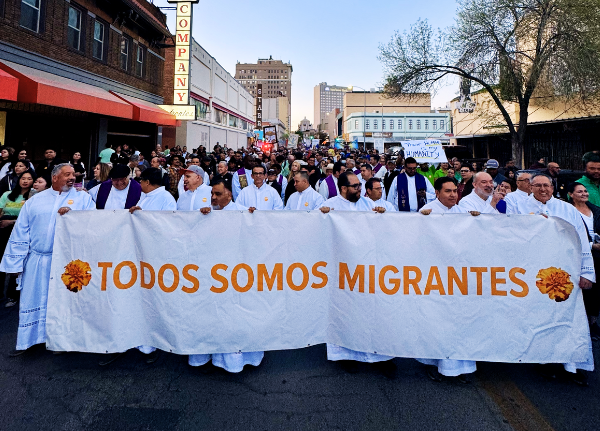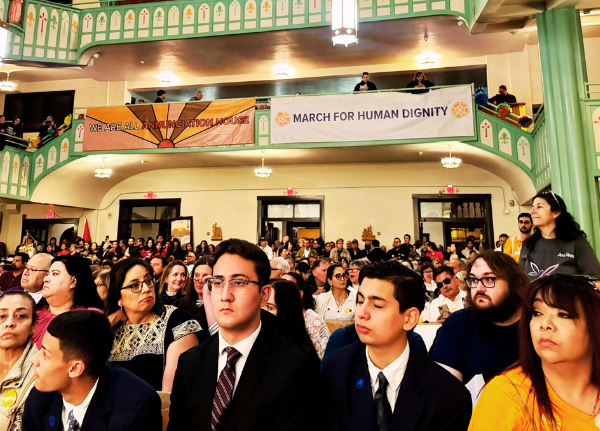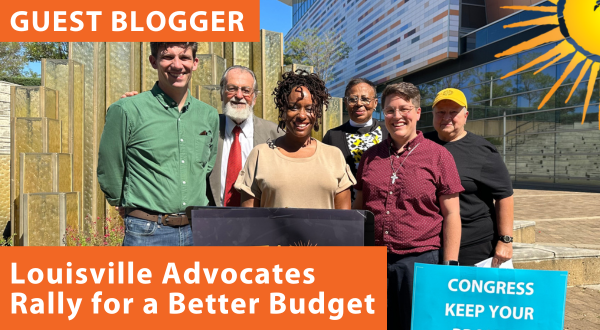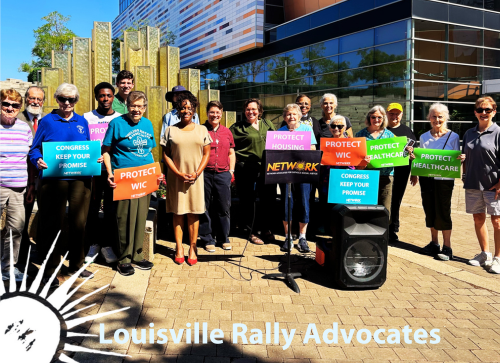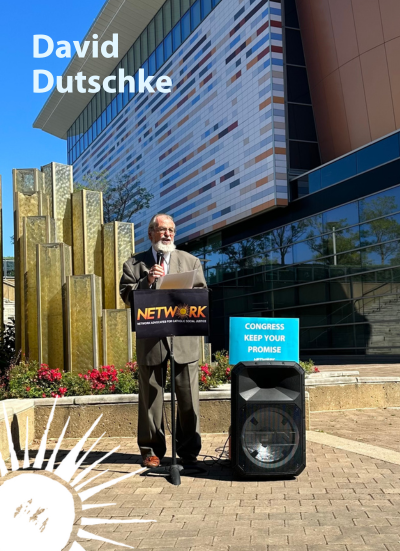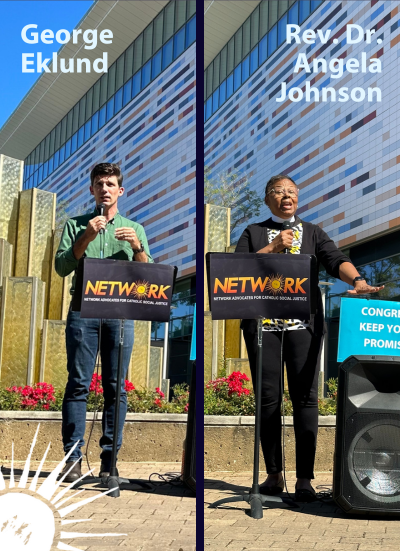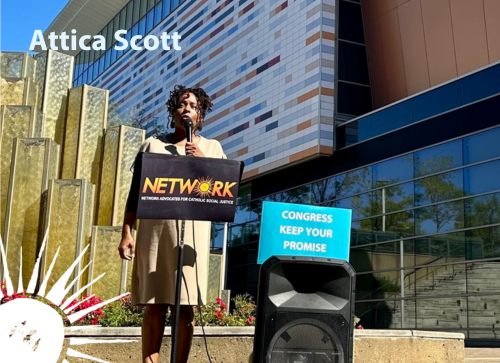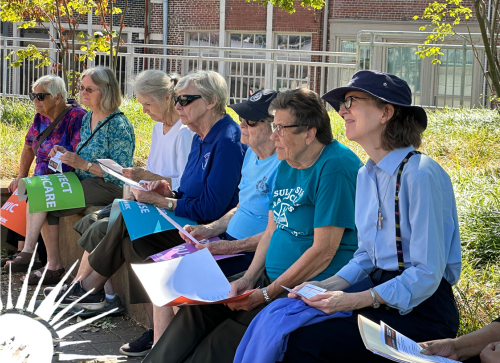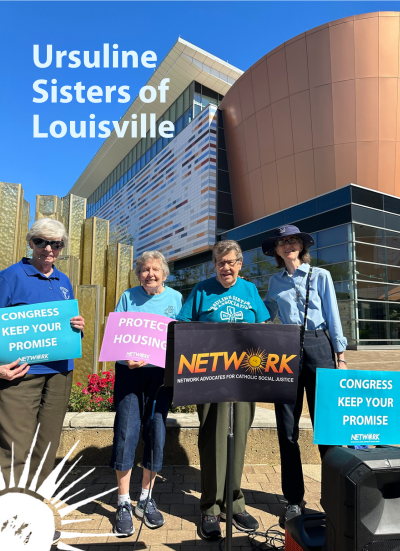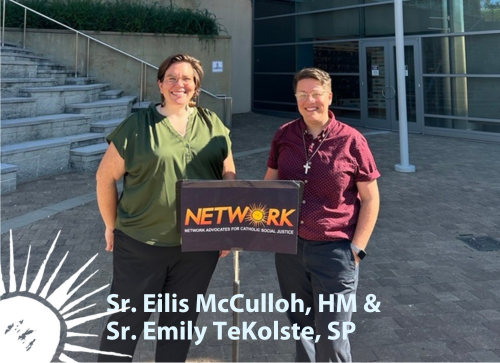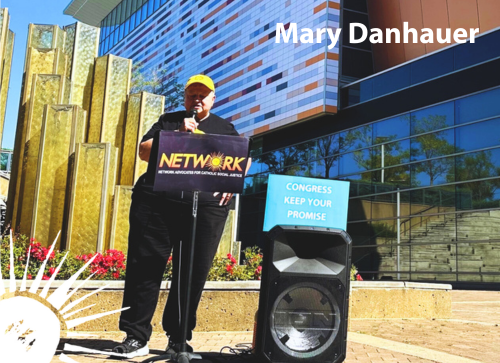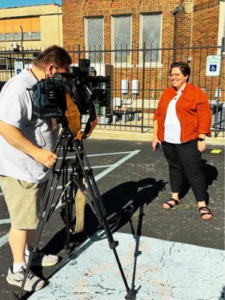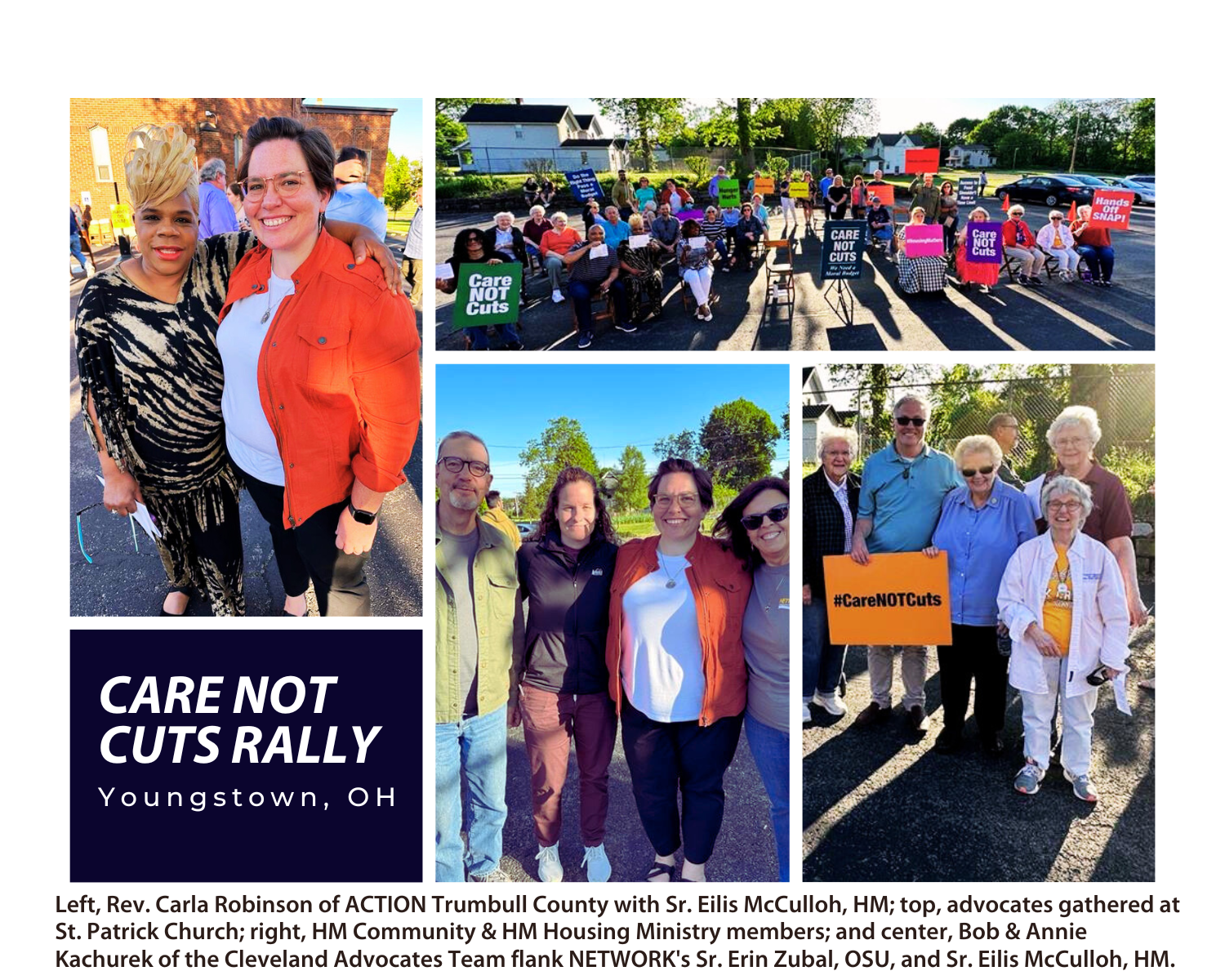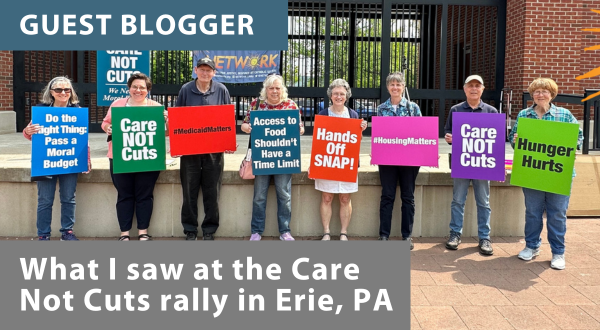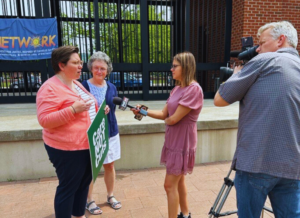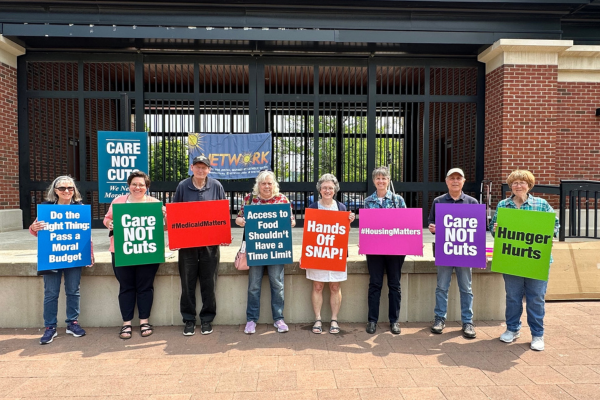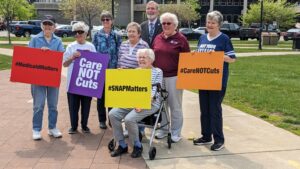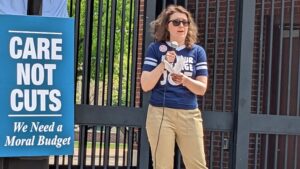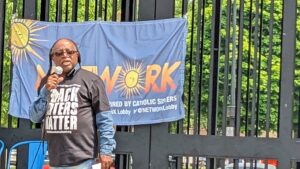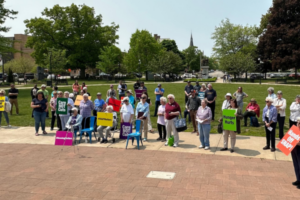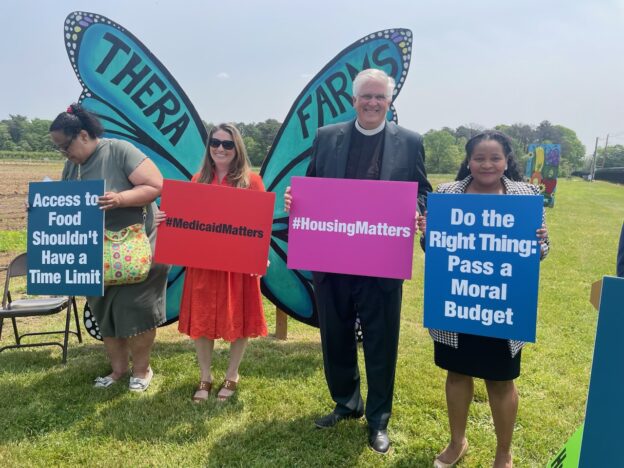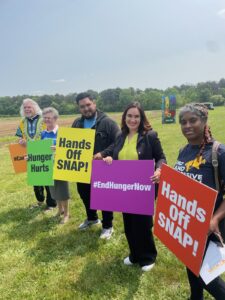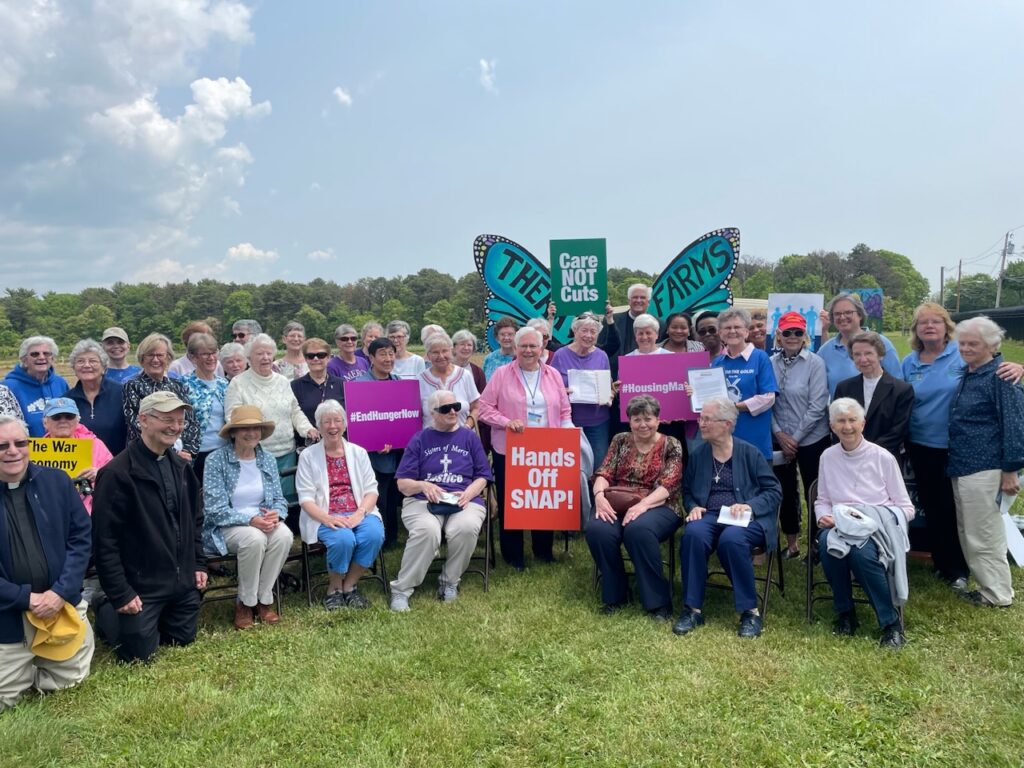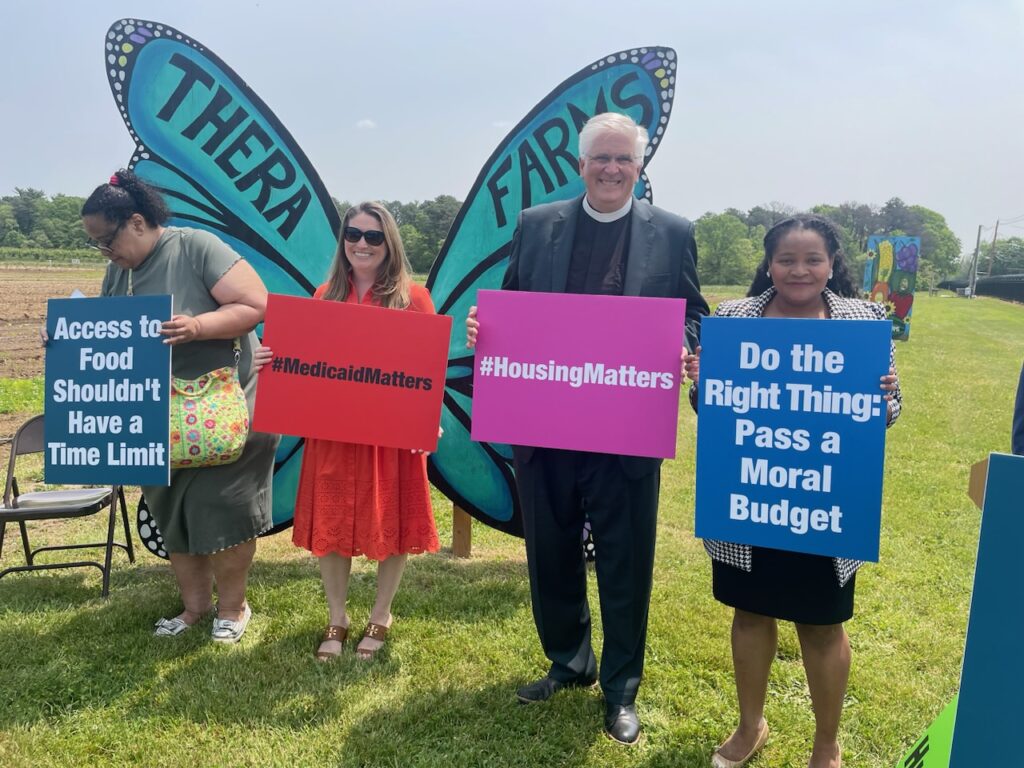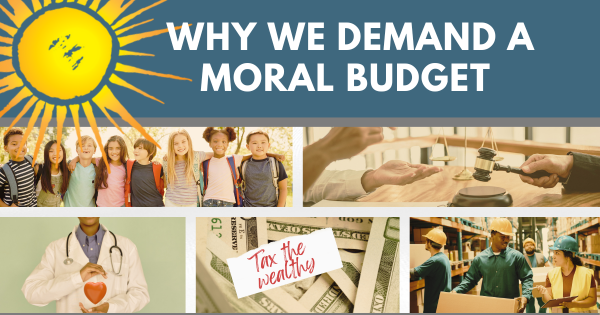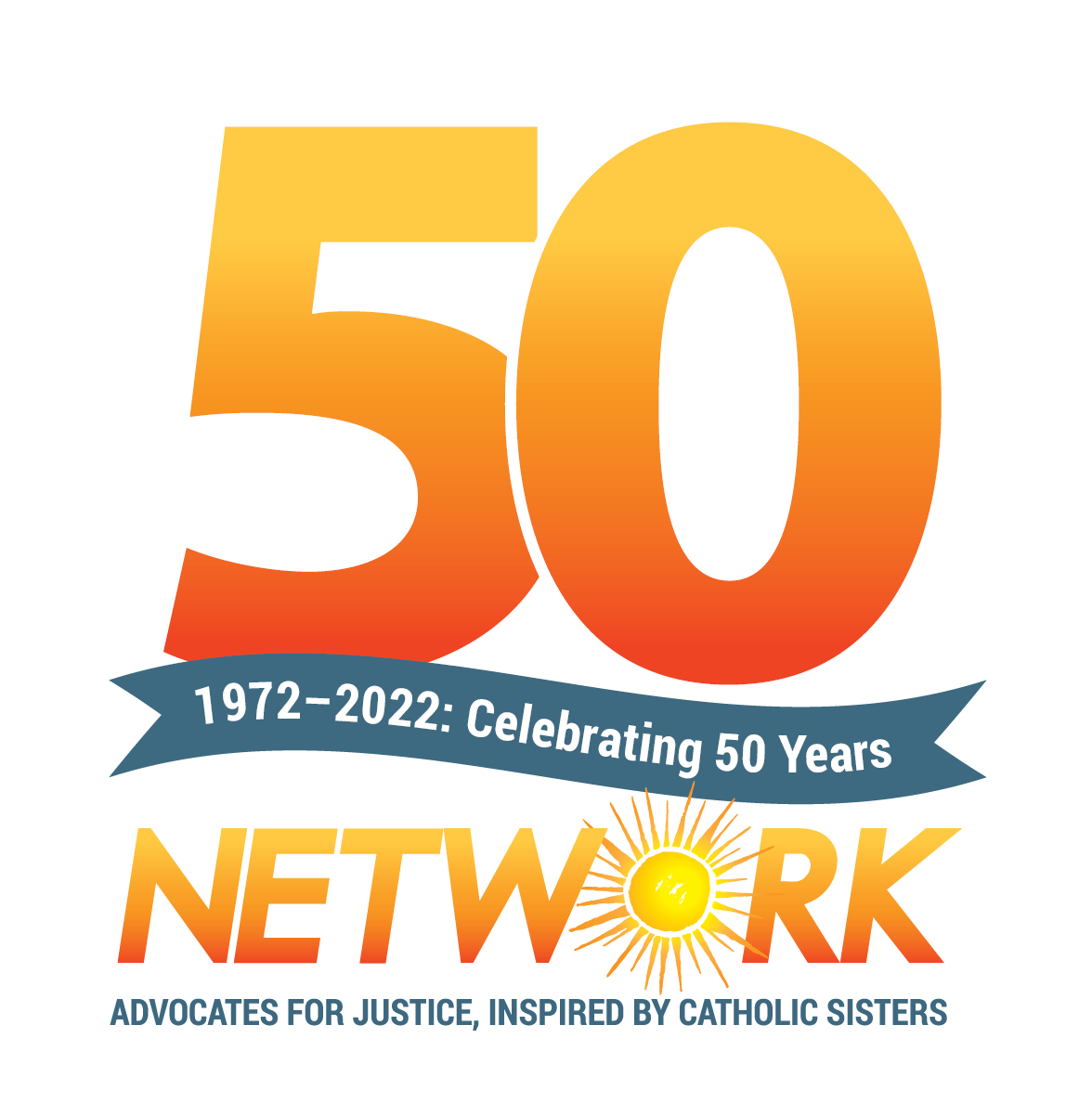Equally Sacred Multi-issue Voter Checklist
Download and share the multi-issue voter Equally Sacred Checklist in English, large print English, and Spanish
Multi-issue Voters Vote Our Future, So Everyone Thrives. No Exceptions!
How can we know we are voting for candidates who promote the common good? Pope Francis makes it clear: Catholics and all people of good will are called to be multi-issue voters, not single-issue voters, in the 2024 elections and in our continued participation in public life. This resource can support you in educating yourself as a faithful voter on the issues and concerns that are “equally sacred.”
“We cannot uphold an ideal of holiness that would ignore injustice in the world.” —Pope Francis, Gaudete et exsultate, par. 101
Multi-issue Voters Vote Our Future, so Everyone Thrives. No Exceptions!
¿Cómo podemos saber que estamos votando por candidatos que promueven el bien común? El Papa Francisco lo deja claro: los católicos y todas las personas de buena voluntad están llamados a ser votantes de múltiples temas, no votantes de un solo tema, en las elecciones de 2024 y en nuestra participación continua en la vida pública. Este recurso puede ayudarlo a educarse como un votante fiel sobre temas e inquietudes que son “igualmente sagrados”.
“No podemos defender un ideal de santidad que ignore la injusticia en el mundo.” —Papa Francisco, Gaudete et exsultate, párr. 101







